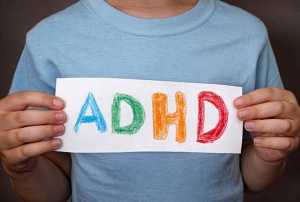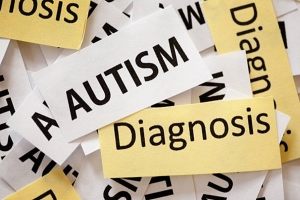Fresh research has revealed that two-thirds of local authorities assessed by the Care Quality Commission (CQC) are failing to meet required standards in their Deprivation of Liberty Safeguards (DoLS) arrangements. The review, carried out by the Social Care Institute for Excellence (SCIE), highlighted widespread backlogs and unlawful delays, with staffing shortages and rising demand identified as the main reasons.
DoLS are legal safeguards designed to protect people who lack capacity to consent to their care, ensuring any restrictions on their freedom are lawful and necessary. However, more than 332,000 applications were made in 2023/24, with only 19% completed within the required 21 days. Many individuals are left waiting over a year for an outcome, raising concerns about preventable deaths, human rights breaches and people being detained without proper legal authority.
Plans to replace DoLS with a new system, the Liberty Protection Safeguards (LPS), have stalled since the Mental Capacity (Amendment) Act 2019, leaving councils and providers working within outdated guidance last updated in 2007. SCIE argues that this inaction has left a fragile framework unable to cope with modern pressures, warning that reforms must be prioritised.
SCIE is urging the Government to publish a clear roadmap for implementing the Act, update Codes of Practice, and invest in workforce training to strengthen compliance with the Mental Capacity Act. Kathryn Marsden OBE, SCIE’s chief executive, warned that continued delays risk “deepening injustice” and exposing vulnerable people with conditions such as dementia, learning disabilities and autism to further harm.
The Government has named campaigner Zara Todd as the first Chair of the Independent Disability Advisory Panel, a new body set up to influence health and disability policy. The group, unveiled in the Get Britain Working White Paper, will be made up of ten deaf and disabled people, as well as those living with long-term health conditions. Its aim is to ensure that lived experience plays a stronger role in shaping government decisions and services.
Ms Todd will lead on assembling the panel, which is intended to operate independently while sharing expertise with the separate Timms Review of Personal Independence Payment. The new forum will act as a bridge between ministers and the disability sector, offering practical insight, guidance and recommendations. By embedding real experiences into policy-making, officials hope to improve trust and build more meaningful collaboration.
Speaking on her appointment, Ms Todd said she was “delighted” to take on the role and highlighted her ambition to strengthen connections between government and disabled people. She added that working together with others who bring direct experience would help create policy that better reflects the needs of the community.
Zara Todd brings extensive experience, having chaired the Edinburgh Accessibility Commission since 2024 and served on various boards and advisory panels across the UK and internationally. Minister for Social Security and Disability, Sir Stephen Timms, welcomed her appointment, describing her expertise as “invaluable” in ensuring disabled voices remain central to future policy development.
A new study from King’s College London has highlighted a connection between the severity of attention deficit hyperactivity disorder (ADHD) symptoms and the intensity of menopause complaints. Published in the Journal of Attention Disorders, the research explored whether women with ADHD experience different menopausal challenges compared with those without, and how medication use may influence these experiences.
The study involved 656 women aged 45 to 60, including 245 with an ADHD diagnosis. Participants completed detailed questionnaires assessing ADHD symptoms and a range of menopausal factors such as sleep, memory, concentration, hot flushes and quality of life. While the research found that women with ADHD did not generally report more menopausal difficulties than those without, a clear correlation emerged: across all participants, more severe ADHD symptoms were linked with greater menopausal complaints.
Interestingly, medication use appeared to influence the pattern of difficulties. Among women with ADHD not taking treatment, symptom severity was tied mainly to anxiety, low mood, memory and concentration. For those on medication, ADHD traits were instead linked to wider wellbeing issues, psychosocial challenges, and the day-to-day disruption caused by hot flushes and night sweats.
Professor Ellie Dommett, senior author of the study, said the findings suggest that ADHD may shape how women interpret and attribute their menopausal symptoms. She emphasised that better understanding this overlap is essential to improving support for women managing both ADHD and menopause.
New evidence suggests that medication for people recently diagnosed with attention deficit hyperactivity disorder (ADHD) can significantly cut the risk of serious negative outcomes. The research, published in the BMJ, highlights reductions in suicidal behaviours, substance misuse, transport accidents, accidental injuries and criminal activity among those receiving treatment.
ADHD affects an estimated 5% of children and around 2.5% of adults globally, and is often linked to impulsivity, poor attention and difficulties with executive functioning. These traits can contribute to higher rates of risk-taking behaviours and poorer life outcomes. The study found that drug treatment may help counter these issues by improving concentration and reducing impulsive tendencies. For example, improved attention could lower the chances of road accidents, while reduced impulsivity may help prevent aggression or crime.
Researchers analysed Swedish health records between 2007 and 2020, covering more than 148,000 people aged 6 to 64 who had received a new ADHD diagnosis. Just over half (57%) began treatment, most commonly with methylphenidate. When compared with those who were not treated, patients on medication had lower rates of four out of five harmful outcomes, with reductions of up to 17% for first-time events.
The benefits were even more pronounced for people with repeated episodes. In this group, medication was linked with a 25% reduction in substance misuse and criminality, alongside notable decreases in suicidal behaviour, accidents and injuries. Researchers say the findings provide strong real-world evidence in favour of ADHD drug treatment.
A major review of medical records suggests that autism is now being identified earlier in young children, particularly boys, though many girls continue to face significant delays in receiving a diagnosis. The analysis, carried out by Epic Research using data from over 338,000 patients diagnosed between 2015 and 2024, found the median age of diagnosis for boys dropped from seven to five, with nearly half identified before the age of five last year.
For girls, the pattern was starkly different. The median age of diagnosis has remained around eight, with only a third diagnosed before the age of five. One in four women were not diagnosed until adulthood, compared with around one in eight men. Experts say the difference may be due to girls displaying subtler or less recognised signs, particularly when symptoms are mild.
While the median age for children has improved overall, the average age of diagnosis remains around 10.5 years, reflecting the number of people who are not identified until much later in life. Early detection is considered crucial, as interventions, therapies, and school support are most effective in the early years.
Specialists urge families to seek assessments through schools or state-run early intervention schemes, and to use trusted resources such as the NHS, the National Autistic Society, and other reputable organisations for guidance and support.
New research from the University of Southampton and the Netherlands Institute of Neuroscience suggests a strong connection between insomnia and reduced quality of life in adults with attention deficit hyperactivity disorder (ADHD). Published in BMJ Mental Health, the study revealed that at least one in four adults with ADHD report a sleep disorder, with insomnia being the most prevalent.
The findings come from the Netherlands Sleep Registry, an online survey involving over 10,000 adults. Participants completed a range of assessments covering demographics, ADHD symptoms, mental health, life satisfaction, insomnia severity, sleep quality, and preferred sleep patterns. Results showed that ADHD traits were linked to poorer life satisfaction, more severe insomnia, increased depression, lower sleep quality, and a tendency to go to bed and wake up later.
Analysis indicated that insomnia may be the key factor connecting ADHD symptoms with reduced life satisfaction. Senior author Dr Sarah L. Chellappa explained that sleep problems can affect attention, emotional control, and behaviour — while ADHD-related hyperactivity and impulsivity can, in turn, disrupt sleep, creating a cycle that worsens both issues.
Co-author Professor Samuele Cortese emphasised the need for further research to understand this complex relationship. He suggested that treatments targeting insomnia, such as Cognitive Behavioural Therapy for Insomnia (CBT-I) or Sleep Restriction Therapy, may improve both mood and overall quality of life for adults with ADHD.
Primark is set to introduce seated mannequins in 22 of its stores, designed to reflect manual wheelchair users and promote greater inclusivity on the high street. The mannequin, named ‘Sophie’, was developed in collaboration with disability campaigner and TV presenter Sophie Morgan, who played a central role in the year-long design process.
‘Sophie’ will feature in both the retailer’s new Adaptive clothing line and its mainstream fashion displays. The Adaptive range, launched earlier this year, includes thoughtful design features like magnetic fastenings, elastic loops and hidden openings for medical access—tailored for people with disabilities or mobility challenges.
This latest step is part of Primark’s broader commitment to better represent the diverse communities who shop with them. Trading Director Ann-Marie Cregan described the launch as a “proud moment”, highlighting the company’s efforts to make stores more accessible and inclusive—from mannequin variety to inclusive product design.
Sophie Morgan praised the partnership, calling the mannequin a “symbol of visibility and progress”. She emphasised how the project was deeply personal and reflected the realities of life as a wheelchair user. The announcement follows other inclusive changes from the brand, including improvements to children's clothing with comfort-led features for sensory-sensitive individuals.
A fresh national approach has been introduced to integrate adult social care placements into undergraduate nursing courses, with the aim of inspiring more students to explore careers supporting individuals with complex health needs, such as dementia, learning disabilities, or mental health conditions.
Currently, nursing students have limited exposure to social care settings, but this is set to change under the government's broader ambition to move care closer to home. By offering placements in residential care, supported living, and domiciliary settings, the initiative hopes to give students meaningful insight into preventative care and reduce unnecessary hospital admissions.
Minister for Care Stephen Kinnock highlighted that while social care nursing is both vital and rewarding, it remains underrepresented in training pathways. The new strategy, developed in partnership with Skills for Care and the Council of Deans for Health, sets out clear expectations for universities and care providers to co-create practical, course-aligned placements for students.
Students will now gain hands-on experience supporting patients in their own communities - working with assistive technology, supporting families, and delivering early intervention services. Chief Nurse for Adult Social Care, Deborah Sturdy, praised the initiative, calling it a significant step towards opening students’ eyes to the full scope of nursing. In 2025 so far, around 30,000 people have applied to study nursing.










